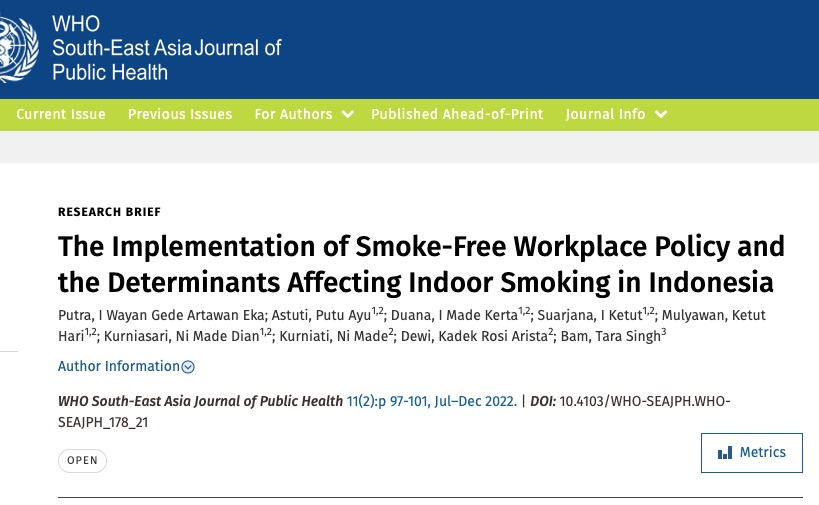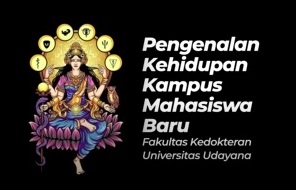Policy on Non-Smoking Areas in the Workplace in Indonesia and Strategies to Increase Compliance
Researchers from the Faculty of Medicine, Udayana University, led by Dr. dr. I Wayan Gede Artawan Eka Putra, M.Epid, has successfully published research results in one of the leading journals in the field of public health. The article entitled "The Implementation of Smoke-Free Workplace Policy and the Determinants Affecting Indoor Smoking in Indonesia" was published in the journal The WHO South-East Asia Journal of Public Health (WHO-SEAJPH).
Dr. Artawan, et al, explained that the implementation of smoking-free area policies (KTR) is very important to increase awareness of the dangers of smoking, prevent exposure to secondhand smoke and improve indoor air quality. KTR includes seven types of areas: health facilities, educational facilities, children's playgrounds, places of worship, workplaces, public places, and public transportation. Compliance with KTR policies in each type of area has certain specific goals and needs to be supported by evidence as a reference for developing an appropriate strategy. In the workplace, KTR policies really help improve the health and productivity of not only workers but visitors served. Even so, it turns out that smoking behavior in workplaces is still high, especially in government workplaces.
Comprehensive strategies and actions must be implemented simultaneously, including installing KTR signs, prohibiting the provision of ashtrays, special smoking areas in buildings and prohibiting all forms of advertising and sponsorship of cigarettes both inside and outside the building. The implementation of KTR policies must be accompanied by the formation of an internal monitoring team tasked with carrying out internal supervision.
The full text of the article can be accessed free of charge via: https://journals.lww.com/wsep/Fulltext/2022/11020/The_Implementation_of_Smoke_Free_Workplace_Policy.6.aspx
WHO-SEAJPH is a Scopus-Q1 indexed journal, where researchers who are successfully accepted for publication do not need to pay an article processing charge (APC).




UDAYANA UNIVERSITY